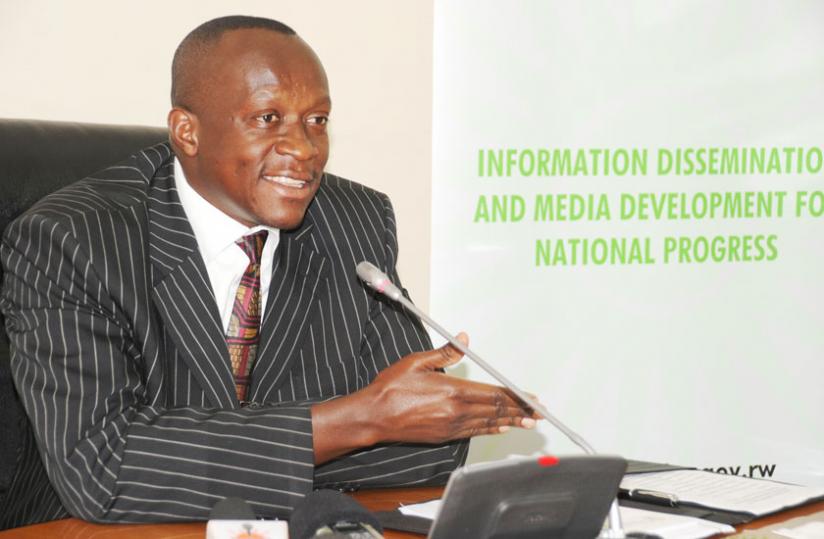Plans to establish a national archive centre in Kigali, to preserve the country's important audiovisual history are in advanced stages. The Minister for Sports and Culture, Joseph Habineza has revealed.


Plans to establish a national archive centre in Kigali, to preserve the country’s important audiovisual history are in advanced stages. The Minister for Sports and Culture, Joseph Habineza has revealed.
The Minister was speaking during celebrations to mark the World Day for Audiovisual Heritage on Monday, October 27 at the ministry’s headquarters in Remera.
The theme for this year’s celebrations was "Archives at Risk: Much more to do.”
"This is very important for us as individuals and as a country. In future, we will need to explain to our children and grandchildren about our history. The national archive is something we see as very urgent and a priority right now,” Habineza said.
Habineza urged everyone with important historical records to submit them to the Ministry for preservation.
According to Habineza, Rwanda has lost a big collection of its historical archives since 1959 when all the vital cultural regalia and information about the monarchy were deliberately destroyed, to the extent that what remains of that can be found in Germany or Belgium.
He said that the trail of destruction of the country’s historical past continued after the coup in 1973, adding that even today there are deliberate efforts to destroy records of the 1994 Genocide against the Tutsi.
"Even today we are seeing a deliberate effort to destroy the records of the 1994 Genocide against the Tutsi which now gives us the challenge on how to properly archive our audiovisual history,” said Habineza.
"For instance today we have Gacaca documents which we need to store properly. These will be digitalised as part of the national archive and we will also work with Rwanda Broadcasting Agency (RBA) to ensure that the audiovisual archives are properly stored,” he added.
According to United Nations Educational, Scientific and Cultural Organization (UNESCO), the world’s audiovisual heritage of sound recordings and moving images are extremely vulnerable as a result of factors ranging from neglect, natural decay to technological obsolescence, as well as deliberate destruction.
Consequently, UNESCO has made it part of its mission to raise public consciousness on the importance of preservation of these recordings through the World Day for Audiovisual Heritage.
UNESCO encourages people around the world to celebrate October 27 by showcasing precious collections so that present and future generations can enjoy the treasures of the audiovisual heritage.


